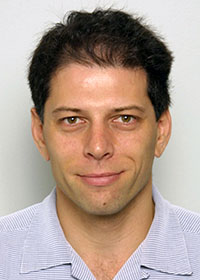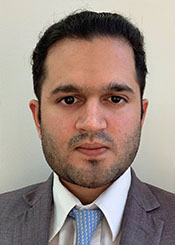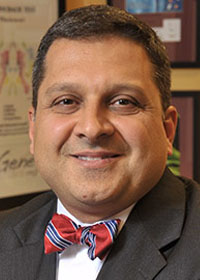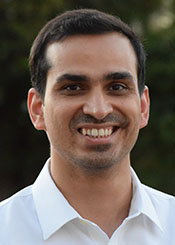Translational Research in Malignancies Members
The Translational Research in Malignancies (TRIM) program is a highly interactive translational cancer research program. Its main objective is to conduct studies centered on molecular mechanisms of cancer progression and therapeutic resistance and to translate basic science and preclinical discoveries into early diagnosis, biomarkers, and cancer therapeutics.
Salem, Riad
Professor
Bio
My primary research interest is the induction of transplant tolerance; this applies to the prevention and treatment of a/cGVHD in hematopoietic stem cell transplantation and prevention and t... [more]
Schaeffer, Edward
Professor
Bio
My clinical and scientific focus is in prostate cancer, with an emphasis on at-risk populations, diagnosis, treatment outcomes, and the molecular biology of lethal prostate cancer. Prostate cancer is... [more]
Shenoy, Niraj
Associate Professor
Bio
The Shenoy Lab is interested in understanding and targeting the interactions between aberrant metabolism, epigenetic dysregulation, and immune evasion in cancer. While kidney cancer (clear cell r... [more]
Shilatifard, Ali
Professor
Bio
I hold the Robert Francis Furchgott Professorship and am the Chairman of the Department of Biochemistry and Molecular Genetics at Northwestern University Feinberg School of Medicine. I continue to run... [more]
Shukla, Vipul
Assistant Professor
Bio
My research broadly focuses on understanding the roles of cytosine modifications and alternative DNA structures in normal and cancer genomes. I am currently investigating the functions of G-quadruplex... [more]
Singhal, Seema
Professor
Bio
Myeloma, Transplantation
Sonabend, Adam
Associate Professor
Bio
Dr Sonabend's research focuses on Topoisomerase II-mediated transcriptional regulation in gliomas, and personalized use of TOP2- targeting chemotherapy to treat malignant brain cancer. He is also... [more]
Stupp, Roger
Professor
Bio
After completion of my clinical training in oncology/hematology,I have devoted my career to innovative treatments of cancer, with a special focus on brain tumors. While single modality... [more]








